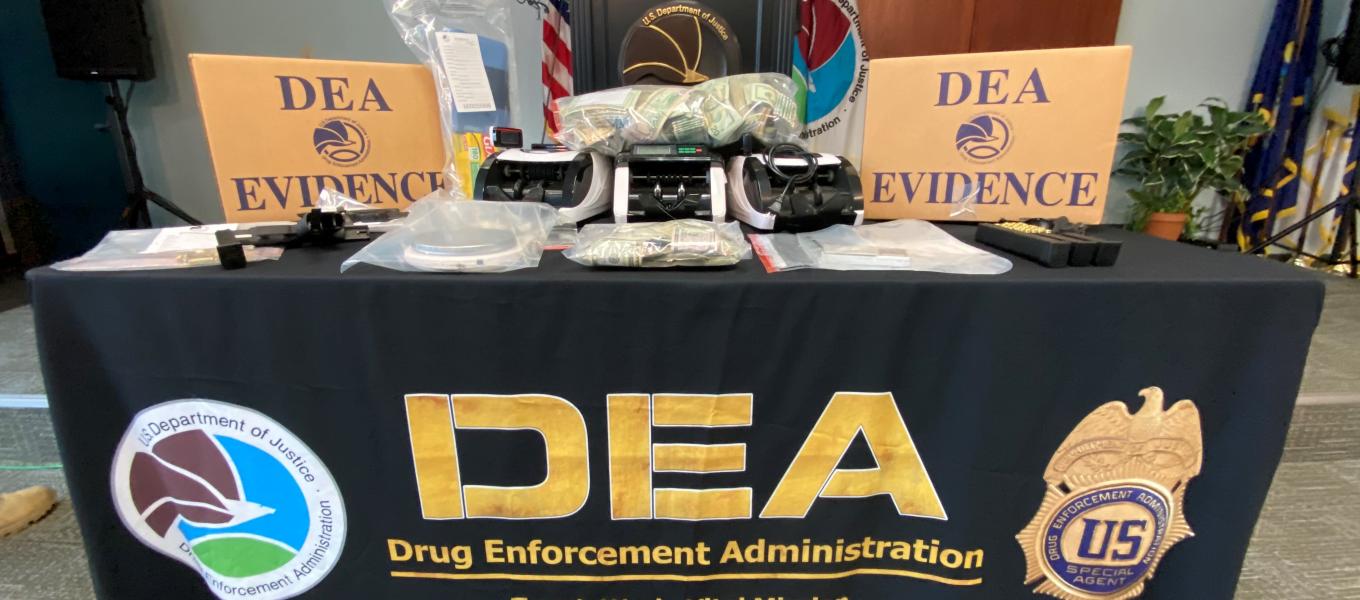After an unsuccessful attempt to pass drug-induced homicide legislation in 2023, Utah is finding other ways to criminalize people for drug distribution. According to the United States Attorney’s Office for the District of Utah (USAO-UT), a newly formed Utah Drug Overdose Task Force, focused on fentanyl, will “raise awareness and increase the number of prosecutable cases.”
The task force a collaboration between USAO-UT and the Drug Enforcement Administration. USAO-UT announced the news in a press release April 5, one day after it announced sentencing in a high-profile drug distribution case that had also been jointly investigated with the DEA.
“Through the task force we aim to consolidate intelligence, particularly digital evidence, from various drug overdose and poisoning crime scenes so that we may identify and exploit potential linkages between incidents,” Dustin Gillespie, Assistant Special Agent in Charge of the DEA’s Salt Lake City District Office stated in the press release. A representative for Gillespie declined Filter‘s request for comment.
Task force members come from 10 local, state and federal law enforcement departments, where they’ll continue “conducting their normal duties and serve on the task force as a collateral duty when needed,” according to the press release. When it was announced April 5, the task force had already brought in 10 cases.
“I reached out to about six different people, and said ‘Am I wrong here? Does this sound terrifying?’”
The new USAO-UT task force has no relation to the Utah Opioid Task Force formed by the Utah Office of the Attorney General in 2017. Both work with the DEA, but the latter is oriented around overdose prevention and disbursing opioid settlement payouts. The new task force, on the other hand, is much more likely to increase overdose than it is to decrease it.
“I reached out to about six different people, and said ‘Am I wrong here? Does this sound terrifying?’ And unequivocally, every one of us said, ‘No one’s going to call 911,” State Senator Jennifer Plumb (D) told Filter. “Folks in recovery, who work in harm reduction with me, public-health types—we all had this same [worry].”
Plumb chairs the Opioid Settlement Advisory Committee formed under the 2017 Utah Opioid Task Force. She told Filter she was initially confused when she learned of the new, similarly named force—and concerned that the “heightened push to criminalize an overdose event” will actively discourage people from calling for help.
“When my brother had overdoses back in the 90s,” Plumb said, “there were times when my family and I would look at him and at each other, crying and screaming and having that terrifying moment, and asking the question: Do we call 911? They’ll take him to jail.”
Plumb, who is also a physician and a cofounder of Utah Naloxone, has sponsored several harm reduction-related bills that were signed in March and will take effect May 1. They include an amendment clarifying that certified peer workers are considered “overdose outreach providers,” along with other first responders. But despite such efforts, criminalization is what Plumb sees gaining momentum in Utah.
“The most important thing right now is to protect harm reduction.”
Photograph via United States Drug Enforcement Administration





Show Comments